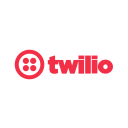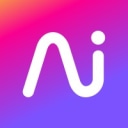Twilio vs Aircall: Which communication platform is best for your business?
- 01Twilio vs Aircall: overview
- 02What's the difference between Twilio and Aircall?
- 03Twilio pros and cons
- 04Aircall pros and cons
- 05Twilio compared to Aircall
- 06Aircall compared to Twilio
- 07Features comparison
- 08Twilio vs Aircall: Which is the best for your business?
- 09Promotions on Customer Experience software
- 10Alternatives to Twilio & Aircall
Save up to $50 on Aircall
Save up to $50 on Aircall
Choosing the right communication platform is essential for businesses looking to streamline customer interactions and improve internal communication workflows. Twilio and Aircall are two of the most popular VoIP and cloud communication solutions, each offering unique features and capabilities. However, deciding which one to implement for your business can be a challenge, especially with the variety of communication needs modern businesses face.
The good news is that both Twilio and Aircall provide robust solutions, but they cater to different types of businesses. In this article, we take a closer look at the key features and differences between Twilio and Aircall to help you determine which platform best suits your communication needs.
Twilio vs Aircall: overview
Twilio and Aircall are two leading cloud-based communication platforms, each offering distinct strengths tailored to different business needs.
Twilio is known for its extensive API capabilities, allowing developers to build customized communication solutions across various channels such as SMS, voice, and video. Its flexibility makes it ideal for businesses that want complete control over their communication infrastructure and the ability to integrate with a wide range of applications. Aircall, on the other hand, shines as a user-friendly, out-of-the-box solution designed specifically for voice communication and call center management. It offers features like call routing, analytics, and integration with CRM platforms, making it a great choice for teams that need a simple yet powerful call management system without the need for heavy customization.
Now, let's dive deeper into the comparison of Twilio vs Aircall. We’ll explore their key features, integrations, and pricing to help you decide which communication platform is best suited to your business.
What's the difference between Twilio and Aircall?
Both Twilio and Aircall are well-established cloud communication platforms offering tools designed to enhance customer communication and streamline business workflows. They share several core functionalities, such as call management, routing, and integration with CRM systems. However, the main difference lies in their flexibility, customization, and target audiences.
Twilio is an API-first platform that provides developers with the flexibility to build custom communication solutions, including voice, SMS, video, and email, across various channels. It’s an excellent choice for businesses that need complete control over their communication infrastructure and want to create highly tailored experiences. Twilio’s vast array of APIs allows for deep customization, making it a favorite among tech-savvy teams looking for a modular approach to communications.
Aircall, by contrast, offers an out-of-the-box VoIP solution designed primarily for teams needing a streamlined call center or phone system. With a simple, user-friendly interface, Aircall allows businesses to set up quickly and start handling calls without complex configurations. It includes core features like call routing, analytics, call queuing, and CRM integration, making it ideal for teams that want an efficient voice communication tool without the need for extensive development or customization.
A notable difference is the focus of each platform. Twilio provides the ability to build communication systems from scratch, offering SMS, email, and other channels in addition to voice. This versatility is appealing to companies with diverse communication needs. Aircall, on the other hand, focuses specifically on voice solutions, catering to businesses seeking a robust call management tool that integrates seamlessly with popular CRMs and helpdesk software.
In terms of ease of use, Aircall is generally simpler and more intuitive, while Twilio’s API-driven platform can be more challenging to configure but provides greater customization for tech-savvy users.
First month free on Aircall
Get First month free on Aircall and up to $50 savings with Secret.
Twilio pros and cons
What are the advantages of Twilio?
- Highly customizable API: Twilio offers a comprehensive set of APIs that allow developers to build custom communication systems. This flexibility makes it perfect for businesses needing tailored solutions across SMS, voice, video, and email.
- Multi-channel support: Twilio supports various communication channels, including voice, SMS, video, and chat, allowing businesses to integrate diverse communication methods into their applications.
- Global reach: Twilio offers extensive global coverage, making it an excellent option for companies needing to communicate across borders with reliable performance.
- Scalability: Twilio’s infrastructure is designed to scale with your business. Whether you're a startup or a large enterprise, Twilio can handle increasing communication demands seamlessly.
- Robust developer resources: Twilio offers extensive documentation, tutorials, and a supportive developer community, making it easier for development teams to implement and troubleshoot custom solutions.
What are the disadvantages of Twilio?
- Steep learning curve for non-developers: Twilio is primarily API-driven, so non-technical users or small teams without developers may find it challenging to set up and maintain without technical support.
- Cost increases with volume: Twilio's pricing is based on usage, which can become expensive as communication volume increases, especially for businesses with high SMS or voice traffic.
- Complex configuration: Customizing Twilio to meet specific needs can be complex, requiring significant development resources and time to fully implement.
- Limited out-of-the-box solutions: Twilio lacks pre-built, plug-and-play solutions for businesses looking for simple communication tools. It requires custom development to leverage its full potential.
- Support costs: Twilio’s basic support options may be insufficient for some businesses, and premium support packages come at an additional cost, which may not be ideal for smaller businesses.
Compare Twilio to other tools
Aircall pros and cons
What are the advantages of Aircall?
- User-friendly interface: Aircall offers an intuitive, out-of-the-box VoIP solution that is easy to set up and use, making it accessible for non-technical users and teams without requiring extensive development.
- Seamless CRM integrations: Aircall integrates smoothly with popular CRM and helpdesk software like Salesforce, HubSpot, and Zendesk, enabling businesses to manage communication within their existing workflows.
- Advanced call management features: Aircall includes useful features like call routing, call queuing, call recording, and analytics, which are ideal for teams running call centers or managing high volumes of inbound and outbound calls.
- Quick setup: Compared to platforms that require extensive customization, Aircall allows businesses to quickly get up and running, making it a great choice for growing companies that need a fast, reliable phone system.
- Scalable for teams: Aircall is scalable, with features designed to support teams of various sizes, from small teams to large enterprises, ensuring the platform grows with your business.
What are the disadvantages of Aircall?
- Limited customization: While Aircall is user-friendly, it lacks the customization options that platforms like Twilio offer. Businesses needing highly tailored solutions may find Aircall restrictive.
- Focus on voice communication: Aircall’s main strength is in voice communication, so businesses needing multi-channel support (e.g., SMS, email, video) may find the platform lacking in comparison to more comprehensive communication tools.
- Pricing can be high for larger teams: Aircall charges on a per-user basis, which can become expensive for large teams or companies with high call volumes, especially when adding features like international calling.
- Dependence on internet connectivity: As a cloud-based VoIP service, Aircall requires a stable internet connection. Any issues with internet performance can affect call quality and reliability.
- Limited reporting customization: While Aircall provides useful call analytics, the reporting features are somewhat limited in terms of customization. Businesses needing in-depth or highly tailored reports may find it lacking.
Compare Aircall to other tools
Twilio compared to Aircall
Twilio and Aircall serve different purposes in business communications. Twilio is an API-driven platform offering extensive customization across multiple communication channels like voice, SMS, and video, making it ideal for developers and businesses seeking highly tailored solutions.
In contrast, Aircall is a user-friendly, out-of-the-box VoIP solution focused on voice communication and call center management, offering simple setup and seamless integration with CRM systems. While Twilio provides flexibility and scalability for complex needs, Aircall excels in ease of use and rapid deployment for businesses requiring efficient call handling without heavy technical development.
Is Twilio better than Aircall?
Whether Twilio is better than Aircall depends on the specific needs of your business. Twilio is ideal for businesses that require extensive customization and multi-channel communication options, making it a powerful tool for developers who want to build highly personalized solutions.
On the other hand, Aircall is better suited for companies seeking a straightforward, ready-to-use phone system focused on voice communication and call management. Its ease of use and seamless CRM integrations make it perfect for call centers or support teams. Twilio offers more flexibility, but Aircall excels in simplicity and ease of implementation.
What is Twilio best used for?
Twilio is best used for building custom communication solutions across multiple channels, including SMS, voice, video, and email. Its API-driven platform allows developers to integrate these channels into existing applications or create entirely new communication workflows tailored to business needs.
Twilio excels in scenarios where flexibility, scalability, and customization are key, making it ideal for businesses that require robust communication infrastructure, such as customer service systems, notification services, or multi-channel marketing platforms. It is particularly valuable for companies that want full control over how they engage with customers through personalized and scalable communication tools.
Can Twilio replace Aircall?
Twilio can technically replace Aircall, but it depends on the business's needs and technical capabilities. Twilio is highly flexible and offers APIs that allow developers to build custom voice solutions similar to what Aircall provides, including call routing, recording, and analytics. However, Twilio requires significant development resources and expertise to implement, making it less ideal for businesses seeking an out-of-the-box solution.
Aircall, on the other hand, is designed for immediate use, with built-in features for call management and seamless integrations. For teams needing a quick and easy setup, Aircall is a better fit, while Twilio offers more customization.
Is Twilio cheaper than Aircall?
Whether Twilio is cheaper than Aircall depends on the specific use case and scale of usage. Twilio charges based on usage, meaning costs fluctuate depending on call volume, messages sent, or API requests, making it potentially more cost-effective for smaller, low-volume projects. However, as usage scales, especially for voice and messaging services, Twilio's costs can rise significantly.
Aircall, on the other hand, offers fixed per-user pricing with tiered plans, providing a predictable cost structure, which can be advantageous for businesses with a high volume of calls. In short, Twilio may be cheaper for lower usage, but Aircall's pricing may be more stable for larger teams.
Is there a better Customer Experience software than Twilio?
While Twilio is a highly versatile and powerful communication platform with extensive API capabilities across SMS, voice, and video, several alternatives to Twilio might be better suited for specific business needs.
Platforms like Vonage API, Plivo, and MessageBird offer similar multi-channel communication solutions with varying pricing models and feature sets. For businesses seeking an out-of-the-box solution focused primarily on voice communication, Aircall or RingCentral may be a better fit.
The best communication software depends on factors such as your need for customization, ease of use, pricing, and the specific communication channels you plan to utilize.
Aircall compared to Twilio
Aircall and Twilio cater to different communication needs, with Aircall offering a user-friendly, out-of-the-box VoIP solution primarily focused on voice communication and call center management. It is ideal for businesses looking for a quick setup with minimal technical expertise, providing seamless integration with CRM systems and essential call management features like routing, recording, and analytics.
Twilio, on the other hand, is an API-based platform offering far greater flexibility, allowing businesses to build customized multi-channel communication solutions across SMS, voice, and video. While Aircall excels in simplicity and ease of use, Twilio offers unmatched customization for more complex needs.
Is Aircall better than Twilio?
Aircall can be considered better than Twilio for businesses that prioritize simplicity and ease of use in their voice communication systems. Its out-of-the-box setup, quick deployment, and built-in call management features like recording and routing make it ideal for teams without technical expertise. Aircall’s seamless CRM integration also makes it highly efficient for sales and customer support teams.
However, Twilio’s greater flexibility and multi-channel capabilities may outweigh Aircall’s advantages for businesses needing customized solutions or complex communication infrastructure. Aircall is superior for straightforward call handling, while Twilio excels in customization and multi-channel communication.
What is Aircall best used for?
Aircall is best used for businesses that need a simple, efficient, and ready-to-use phone system, especially for teams managing inbound and outbound calls. It is particularly well-suited for call centers, customer support teams, and sales operations that require easy call management, including features like call routing, recording, and analytics.
Aircall integrates seamlessly with popular CRM and helpdesk platforms, making it ideal for businesses that need their phone system to sync with their customer databases. Its user-friendly interface and quick setup make it perfect for teams that need reliable voice communication without the complexity of custom-built solutions.
Can Aircall replace Twilio?
Aircall cannot fully replace Twilio, as they serve different purposes. Aircall is a ready-to-use VoIP solution designed specifically for voice communication and call center management, making it ideal for businesses needing a straightforward phone system with minimal technical setup.
Twilio, on the other hand, is an API-based platform that supports multi-channel communication, including SMS, voice, video, and email, allowing for highly customizable solutions. While Aircall provides simplicity and ease of use for voice-related needs, Twilio offers much more flexibility and customization across multiple communication channels, which Aircall cannot replicate without significant limitations.
Is Aircall cheaper than Twilio?
Whether Aircall’s pricing is cheaper than Twilio depends on the specific usage and needs of the business. Aircall has fixed per-user pricing plans, making it easier to predict costs, particularly for businesses with a high number of users and call volume. This makes it appealing for teams that need a straightforward solution with transparent pricing.
Twilio, however, operates on a pay-as-you-go model, which can be more cost-effective for businesses with lower call volumes or those needing multiple communication channels. As usage increases, Twilio’s costs can scale quickly, making Aircall potentially more affordable for teams focused primarily on voice communication.
Is there a better Call Centers software than Aircall?
While Aircall is a strong VoIP and call center management solution, there are several alternatives that might be considered better depending on your business's specific communication needs.
Alternatives to Aircall like RingCentral, OpenPhone, Dialpad, and Grasshopper offer similar or even more comprehensive voice solutions, each with unique features like video conferencing, messaging, and advanced analytics. These alternatives can provide more flexibility or additional functionalities that Aircall might lack.
The best communication software for your business depends on factors like the level of customization you need, budget, preferred integrations, and the scale of your team’s communication requirements.
First month free on Aircall
Get First month free on Aircall and up to $50 savings with Secret.
Features comparison
Both Twilio and Aircall Offer Comprehensive Voicemail Services
Both Twilio and Aircall provide voicemail services, making them competitive in this area. Twilio offers a reliable voicemail feature that ensures no call is missed, allowing businesses to capture and store voice messages for later follow-up. However, Aircall enhances its voicemail capabilities with transcription services, which automatically convert voice messages into text and deliver them via email. This feature allows teams to respond more quickly and efficiently to missed calls, particularly in fast-paced environments like sales or customer support.
While Twilio covers the basics effectively, Aircall’s transcription service adds an extra layer of convenience, though both platforms remain strong contenders in voicemail management.
Aircall Excels Ahead of Twilio for Ease-of-Use
When it comes to ease-of-use, Aircall clearly takes the lead over Twilio. While both platforms aim to be user-friendly, Aircall’s intuitive interface sets it apart. Its clean and simple UI allows businesses to navigate the platform easily from the start, making setup fast and straightforward. Tasks like managing calls or training new team members are simple and require less time and effort. For example, sales teams can quickly access call routing and analytics without needing technical expertise.
On the other hand, Twilio’s powerful platform emphasizes programmability, which provides flexibility but often requires a steep learning curve for new users unfamiliar with API-driven solutions.
Aircall Excels Ahead of Twilio with Real-Time Call Monitoring
Aircall’s live call monitoring feature offers a distinct advantage over Twilio, particularly for teams focused on quality assurance and training. With Aircall, supervisors can listen in on live calls and provide instant feedback without disrupting the conversation. This real-time capability is particularly useful for sales and customer support teams, allowing managers to coach team members on the spot and ensure high-quality interactions.
While Twilio offers a wide range of powerful call functionalities, including call recording and analytics, it lacks the live monitoring feature that makes Aircall a superior choice for businesses needing immediate oversight and real-time coaching during calls.
Aircall Excels Ahead of Twilio with Detailed Call Analytics
When it comes to gaining insights into call performance, Aircall’s comprehensive analytics dashboard clearly outperforms Twilio’s basic call analysis. Aircall provides businesses with detailed metrics such as call duration, wait times, missed calls, and overall usage patterns. These insights allow teams to identify inefficiencies, optimize workflows, and improve customer interactions. For example, customer service teams can use this data to reduce wait times or improve response rates.
While Twilio offers some analytical tools, they lack the depth and accessibility found in Aircall’s dashboard, making Aircall the superior choice for businesses that rely heavily on data-driven decision-making to refine their communication processes.
Twilio Reigns Superior Over Aircall for Integration Capabilities
When it comes to integration possibilities, Twilio reigns superior to Aircall. Twilio’s API-centric structure allows it to integrate seamlessly with a broader range of platforms and applications, making it highly attractive to tech-savvy businesses. For example, Twilio can connect to complex systems like CRM platforms, marketing automation tools, or even proprietary software, enabling businesses to build fully customized communication workflows. Its advanced APIs give developers the flexibility to create personalized solutions across voice, SMS, email, and more.
While Aircall supports popular integrations like Salesforce and HubSpot, its integration offerings are limited compared to Twilio's extensive ecosystem. If your organization depends heavily on customized integrations to streamline operations, Twilio is the clear winner.
Twilio Surpasses Aircall in Comprehensive Call Functionality
Twilio provides an expansive suite of call-related features that surpass Aircall’s offerings in terms of flexibility and security. Beyond simple calls, Twilio supports advanced functionalities such as conference calling, call queuing, and sophisticated voicemail services. Its secure and hidden calling features, which ensure encrypted and private communications, are ideal for businesses requiring high levels of confidentiality, such as healthcare or legal sectors.
While Aircall offers notable features like call routing through its IVR system, these options remain limited compared to Twilio’s extensive call management tools. For organizations prioritizing advanced call functionality and security, Twilio is the superior choice.
Aircall Excels Ahead of Twilio in Comprehensive Call Recording Capabilities
Aircall takes the lead in call recording, a critical feature for businesses focused on data accuracy, compliance, and quality control. Aircall’s call recording functionality is built into its core offerings, allowing businesses to automatically record every conversation for future review, training, or audit purposes. This makes it ideal for industries such as customer service, sales, and legal, where thorough call documentation is essential.
While Twilio offers voicemail and some recording features through custom APIs, its recording capabilities are less streamlined compared to Aircall’s out-of-the-box solution. For organizations prioritizing robust call documentation, Aircall is the superior choice.
Subscribe to our newsletters.
No FOMO here. Stay up-to-date on all the latest deals and news with our monthly newsletter straight to your inbox like 124,000+ entrepreneurs (+ Get 10% off on on our Premium Membership!)
Twilio vs Aircall: Which is the best for your business?
Twilio is the best tool for you if:
- Your business requires highly customizable communication solutions, as Twilio’s API-driven platform allows developers to create tailored workflows across multiple channels like SMS, voice, email, and video.
- You need a scalable communication infrastructure, as Twilio can grow with your business, handling everything from small-scale messaging needs to enterprise-level multi-channel communication systems.
- Your team has technical expertise and can leverage Twilio’s flexible APIs to build custom features, ensuring seamless integration with existing applications or building new communication tools from scratch.
- You prioritize multi-channel communication, as Twilio supports voice, SMS, email, video, and chat, enabling you to interact with customers across different platforms with ease.
- Your business operates internationally, as Twilio’s global reach ensures reliable communication across multiple regions, allowing for seamless cross-border customer interactions and support.
Aircall is the best tool for you if:
- You need an easy-to-use, out-of-the-box VoIP solution that requires minimal setup, making it ideal for teams without extensive technical knowledge or development resources.
- Your business relies heavily on call management and customer support, as Aircall provides features like call routing, recording, and live monitoring specifically designed to enhance voice communication.
- You want seamless integration with popular CRM and helpdesk platforms like Salesforce and HubSpot, enabling smooth data flow between your phone system and customer management tools.
- Your team requires real-time call monitoring and coaching features, which allow supervisors to provide instant feedback and support without interrupting live calls.
- You are looking for a scalable, cloud-based phone system that can grow with your team, offering reliable service and advanced call analytics to optimize performance.
First month free on Aircall
Get First month free on Aircall and up to $50 savings with Secret.
Alternatives to Twilio & Aircall
Promotions on Customer Experience software
Start saving on the best SaaS with Secret.
Secret has already helped tens of thousands of startups save millions on the best SaaS like Twilio, Aircall & many more. Join Secret now to buy software the smart way.













